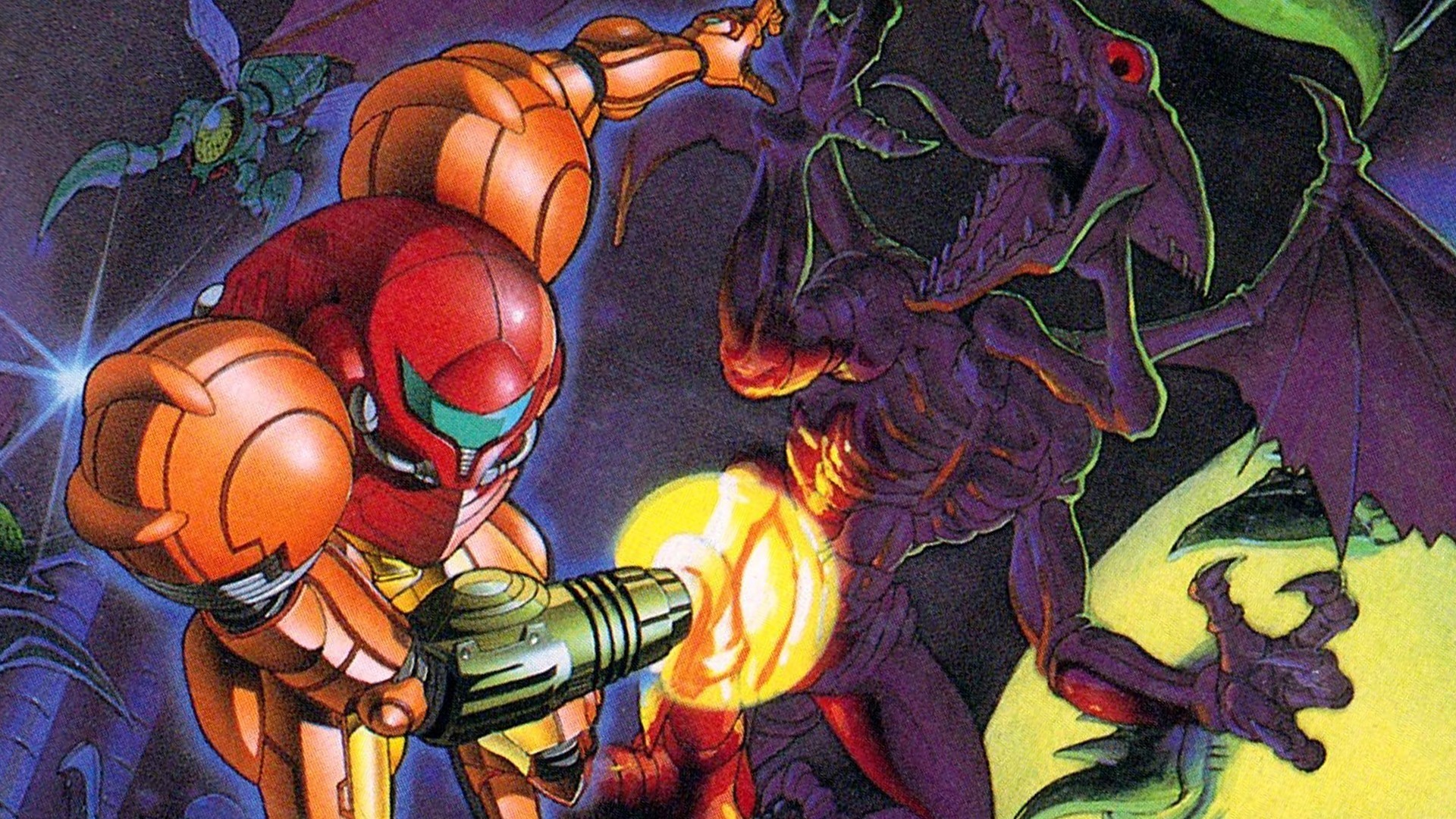10 things to know about SGDQ so you can get the most out of Twitch's biggest summer event
How – and when – to watch the world's best speed runners in action, plus a bluffer's guide to the key skills and terminology

Over the years, Games Done Quick has grown from a niche charity event put on by a small community to a legitimate global phenomenon. The first event back in 2010 only made a little over $10,000 for charity; fast forward to 2017, and fans all over the globe have donated over $2 million during January's Awesome Games Done Quick event, where hundreds of thousands watch the world's best speedrunners completely demolish their favorite games.
Even if you haven't sat down to actually watch Games Done Quick, you've probably seen it pop up on your social media feeds every six months or so, as people marvel at the incredible gaming feats on display (like that one time someone beat Mike Tyson's Punch-Out in 30 minutes while blindfolded). But if you're looking to finally check out the show from the start, there's a surprising amount of info to take in - some of which may go right over your head if you've never watched one of these streams before. I've compiled a basic viewer's guide in a handy Q&A that should get you up to speed in no time. And remember: always save the animals.
What is Games Done Quick and why is it so popular?
Games Done Quick is a charity drive hosted by various members of the speedrunning community, held twice a year: Awesome Games Done Quick is in January, while Summer Games Done Quick is coming up on July 2. It's a week-long event, and games are usually played back-to-back, 24-hours-a-day until the show is over, save for the occasional set-up/tech break.
Distinguished guests from the speedrunning community show up to play individual games as quickly (or unconventionally) as they can with all sorts of self-imposed handicaps. Viewers are encouraged to donate money via the website or Twitch, and if they donate during a specific game's stream, they can also vote on mini-goals for the streamer to undertake, from naming their save file a certain way, to making a specific decision in a game with multiple endings. Developers, crafters, and various organizations also provide a ton of prizes, so donors can also be entered into raffles to win games, merchandise, and even consoles.
How can I watch Summer Games Done Quick?
Twitch is the home of Summer Games Done Quick, and you can watch it via the player below when the pre-show starts at 1730 BST / 1230 EST / 0930 PDT on Sunday July 2nd.
You can check it out on Twitch starting Sunday July 2 at 9:30am PDT, and will run until around midnight PDT on Sunday July 9. If you miss any of the streams you wanted to see, don't worry - archives of each run end up on YouTube a little bit after the show.
- Here's the full Summer Games Done Quick schedule so you know when to tune in for your favorite game.
Where do my donations go?
It depends on the event being hosted. Currently, Awesome Games Done Quick provides its donated funds to the Prevent Cancer Foundation, an organization that funds cancer research and promotes cancer prevention and awareness. The upcoming Summer Games Done Quick will donate funds to Doctors Without Borders, an organization that helps bring medical services to people in countries afflicted by disease or war.
Sign up to the GamesRadar+ Newsletter
Weekly digests, tales from the communities you love, and more
Is it possible for the public to attend?
It is, but registration for Summer Games Done Quick ended a while ago, so you won't be able to just go up and buy a ticket. But if you'd like to attend future events, keep an eye on Games Done Quick's website, and make sure you register before the respective deadline. And hey, you can watch it all from the comfort of your own home on Twitch anyway.
What kind of games do people play? Is it just old or popular stuff?
What makes Games Done Quick so magical is that it isn't just a list of the usual suspects. Sure, you'll see Super Mario, Zelda, Halo, and a ton of other popular and classic games. But GDQ loves to throw curveballs with some real deep cuts. To get a sense of what's on offer at Summer Games Done Quick, the show is opening with a run through the recently released Nier: Automata (with one hand, no less), and will close out the show with Earthbound. This year's full schedule (which you can check out here) runs the gamut, from indie weirdos like I Am Bread and OmniBus, to classics like Super Mario 64 and Final Fantasy 7, to, uh, Plok.
So what are the rules? Just beat the game fast?
Generally, yes, that's the idea, but speedrunners often impose a variety of goals or restrictions on themselves depending on the length or difficulty of a game, and can either be done through normal play or by finding ways to break through the intended design. Here's a rundown of a few of the things you'll probably see during Summer Games Done Quick:
Any% / Low% / 100%
This listing determines how much of a game needs to be completed for the run to count. Any% means the game just needs to be finished - usually by reaching the credits or some kind of 'congratulations' screen. This can mean skipping side quests, ignoring optional upgrades, or even bypassing required story beats or locations by exploiting bugs or gimmicks in the game's design. Low% means the runner is purposely trying to collect the least amount of items or upgrades they need to finish the game. 100% means that a game's content must be completely exhausted to count: all collectibles, all side quests, everything.
Glitchless / 'No OoB'
If a run is marked as 'glitchless', that means the game is probably going to be played as purely as possible. The speedrunner may take advantage of various tricks to increase speed or prioritize completion (rolling constantly to move faster than simply running, for example), but they won't exploit any bugs or glitches or go out of bounds ('OoB') to complete the game. Someone glitching through Prey can beat it in under ten minutes, which may be cool to watch, but it'd be way more impressive to see someone beat it in an hour or two without breaking the game to do it.
Unorthodox controls / other restrictions
Some streams impose a variety of different external restrictions or tweaks, just to keep things interesting. Some people finish games super fast while blindfolded (excuse me while I link that amazing Punch-Out run again), while this year, speedrunners will tackle Nier: Automata one-handed, or Tetris: Grandmaster with two players on one controller.
What is the listed target time?
Each game listed on the schedule has a target time. This is the amount of time the speedrunner thinks they need to complete the game under the required restrictions. This gives the Games Done Quick organizers the opportunity to schedule out dozens of games over the week while keeping the show running on time. It's very rare for a game to go over the target time, and we've even seen a few world records broken at Games Done Quick events.
Who speedruns in these things?
Most of the time, members of the speedrunning community are the ones registering for these events, and are joined by a group of fellow speedrunners to help provide commentary and context for the current player's actions (and crack a few jokes). The best streams are the ones that mix humor and a wealth of information to provide history and game design lessons (my favorite is this playthrough of Link's Awakening, in which the panel of experts explain exactly how broken that game is while the runner completely destroys it).
Games Done Quick isn't open to just experts, though: anyone can submit a game they want to stream along with a video showing off their skills for consideration. For instance, Alex Navarro from Giant Bomb provided a speedrun of the legendarily terrible Big Rigs: Over the Road Racing.
What the heck is a TASBot?
For most speedruns at GDQ, live humans play their games on legitimate hardware - imperfections and all. Some runs, however, are part of the 'TAS Block', and this is where things get really weird. TAS is short for 'tool-assisted speedrun', and in really basic, reductive terms, it's essentially a speedrun that uses functions normally built into emulators - speed control, save states, multiple inputs, and more - along with additional software, allowing the speedrunner to show off runs that no human player could ever manage.
Certain segments include a device called TASBot, which sends inputs to a controller thousands of times per second, allowing speedrunners to perform "total control runs". Not only do they glitch the game out, but they can even add custom code to the game thanks to the exploits allowed by the bot. There doesn't seem to be any TAS-enabled speedruns at Summer Games Done Quick this year, but if you want to have your mind completely blown, go check out the last AGDQ TASBot stream, where they're able to take Skype calls through a Link to the Past cartridge. It's wild.
What does "save/kill the animals" mean?
This is a running gag referring to the end of Super Metroid, where players can decide whether or not they want to save the alien animals during the final countdown, or whether they want to leave them to their explosive fate. During the event, donors will often vote (and provide jokey explanations) on whether they want the Super Metroid speedrunner to save or kill the animals; the choice is determined by which vote has the most money donated behind it.
This looks fun! Where can I go to get more information on speedrunning my favorite game?
If you want to get started, here are a few handy guides, including:
Basic terminology, as well as essential gear
Tips for learning the best speedrunning methods
The reddit speedrunning community
And a video with a ton of great beginner's tips
Keep practicing and maybe we'll see you at a Games Done Quick event in the future!



